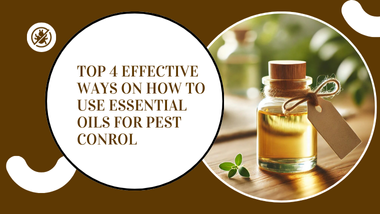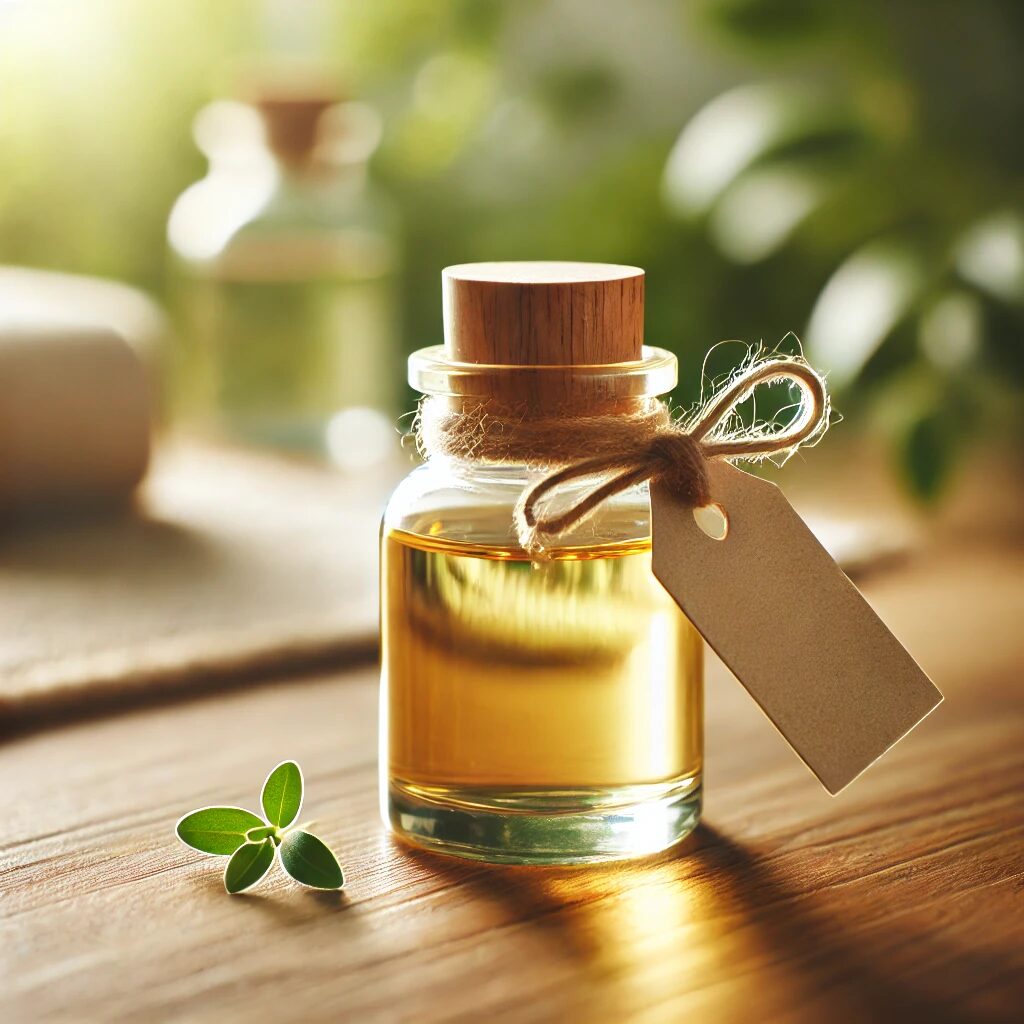
Are you wondering how to use essential oils for pest control? If you’re like most people, you probably don’t love the idea of spraying your home and garden with harsh chemicals.
And while chemical pest control methods can be effective, they often come with unpleasant side effects.
But what if I told you there’s a natural way to keep pests away using something as simple as essential oils?
Yes, that’s right! Essential oils like peppermint, lavender, and tea tree oil can do wonders in your battle against creepy crawlies.
Ready to discover how to use essential oils for pest control? Let’s dive into five powerful methods that will help you naturally repel bugs, rodents, and more from your home and garden.
1. How to Use Essential Oils for Pest Control Around the Home
Nothing beats the cozy feeling of a pest-free home. From ants trailing through the kitchen to spiders lurking in corners, household pests can quickly become a nuisance.
While commercial insect sprays may get the job done, they often come with strong chemical smells and can be harmful to pets or young children.
That’s where essential oils come in! These natural alternatives are not only effective at keeping pests at bay, but they also leave your home smelling fresh and inviting.
DIY Indoor Pest Spray with Peppermint and Lavender Essential Oils
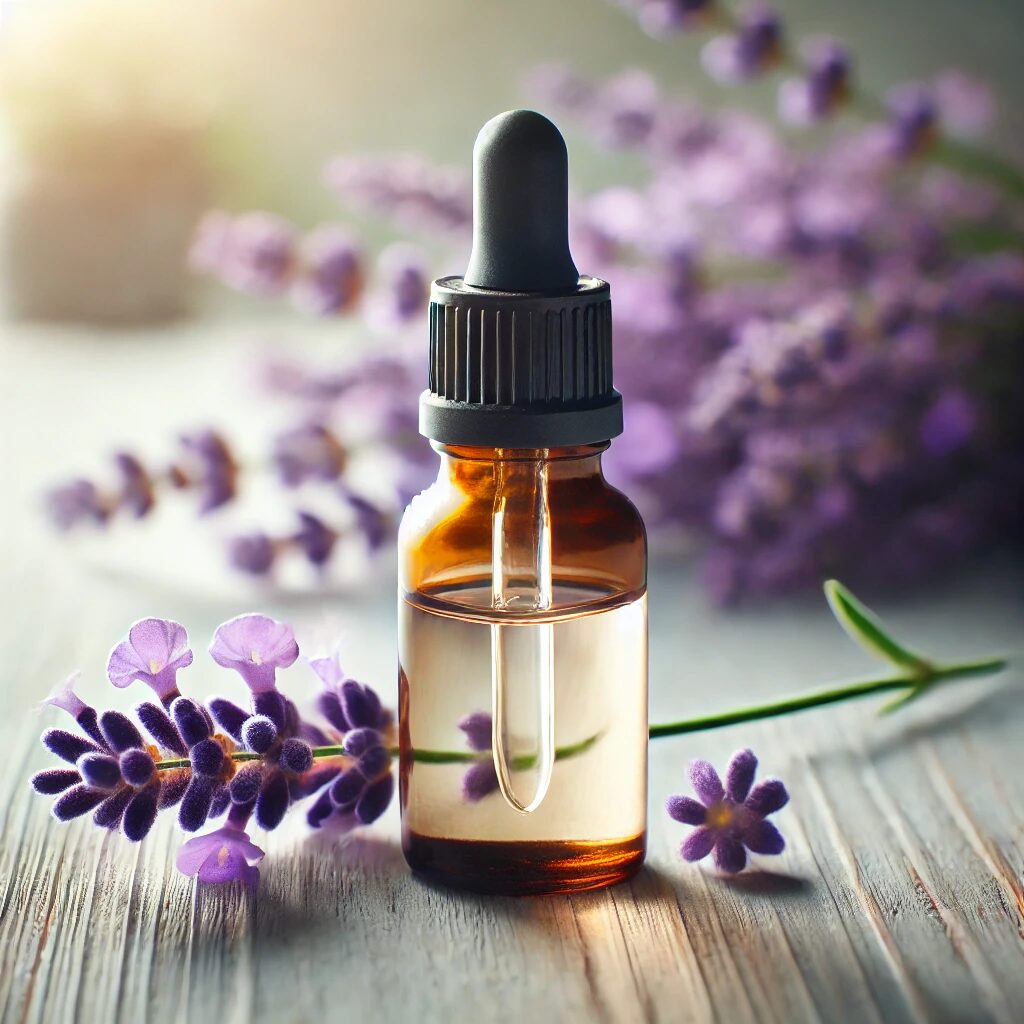
You can create a simple yet effective pest control spray using just a few ingredients you likely already have at home.
Peppermint and lavender oils are particularly potent against common household pests.
Peppermint oil works wonders for repelling ants and spiders, while lavender adds a calming scent that’s pleasing to us but repulsive to many insects, including cockroaches.
Here’s how to make your own indoor pest spray:
- Mix and Spray: Fill a spray bottle with water and add 10 drops of peppermint essential oil and 5 drops of lavender essential oil. Shake the bottle well to ensure the oils disperse evenly. The mix of these oils creates a dual-action solution that targets a variety of pests while freshening your home.
- Spray the Problem Areas: Focus on areas where you’ve noticed insect activity, such as window sills, doorways, cracks, and baseboards. These are common entry points for pests looking to make their way into your home. Lightly mist the surfaces and corners where pests are likely to be found. The oils will create a natural barrier that pests will avoid.
- Refresh Every Few Days: Essential oils are volatile, meaning they can evaporate quickly. To maintain their effectiveness, reapply the spray every couple of days. This ensures that the scent barrier remains strong and keeps pesky critters away.
Additional Tips for Maximizing Your Essential Oil Pest Spray
- Use a Carrier: While the basic mixture works well, adding a small amount of witch hazel or vodka can help the essential oils mix better with the water. This also helps the spray cling to surfaces longer, increasing its effectiveness.
- Target Entry Points: Pay extra attention to entry points like doors and windows, as well as any cracks or crevices where pests could slip through. Spraying these areas can prevent pests from entering your home in the first place.
- Keep It Pet-Friendly: If you have pets, be mindful of where you spray. While most essential oils are safe when used properly, some can be irritating to pets if they come into direct contact with them. Peppermint oil, for example, should be avoided around cats.
- Experiment with Other Oils: While peppermint and lavender are popular choices, other essential oils like eucalyptus, tea tree, and citronella also work well against specific pests. Eucalyptus oil, for example, is great for repelling cockroaches, while tea tree oil can deter ants and other insects.
Using essential oils to combat pests offers a natural, non-toxic solution that not only helps protect your home but also creates a more relaxing and inviting environment. With just a few simple ingredients, you can enjoy a pest-free home and a delightful aroma that makes your space feel fresh and clean.
2. How to Repel Rodents with Peppermint Oil
Rodents like mice and rats have a highly sensitive sense of smell. This trait, while helping them find food and navigate, also makes them particularly susceptible to strong scents like peppermint essential oil.
For us, peppermint offers a refreshing aroma; for rodents, however, it’s a powerful deterrent that can overwhelm their senses and disrupt their daily routines. Using peppermint oil to keep rodents out is a natural, humane, and chemical-free way to protect your home from these unwelcome guests.
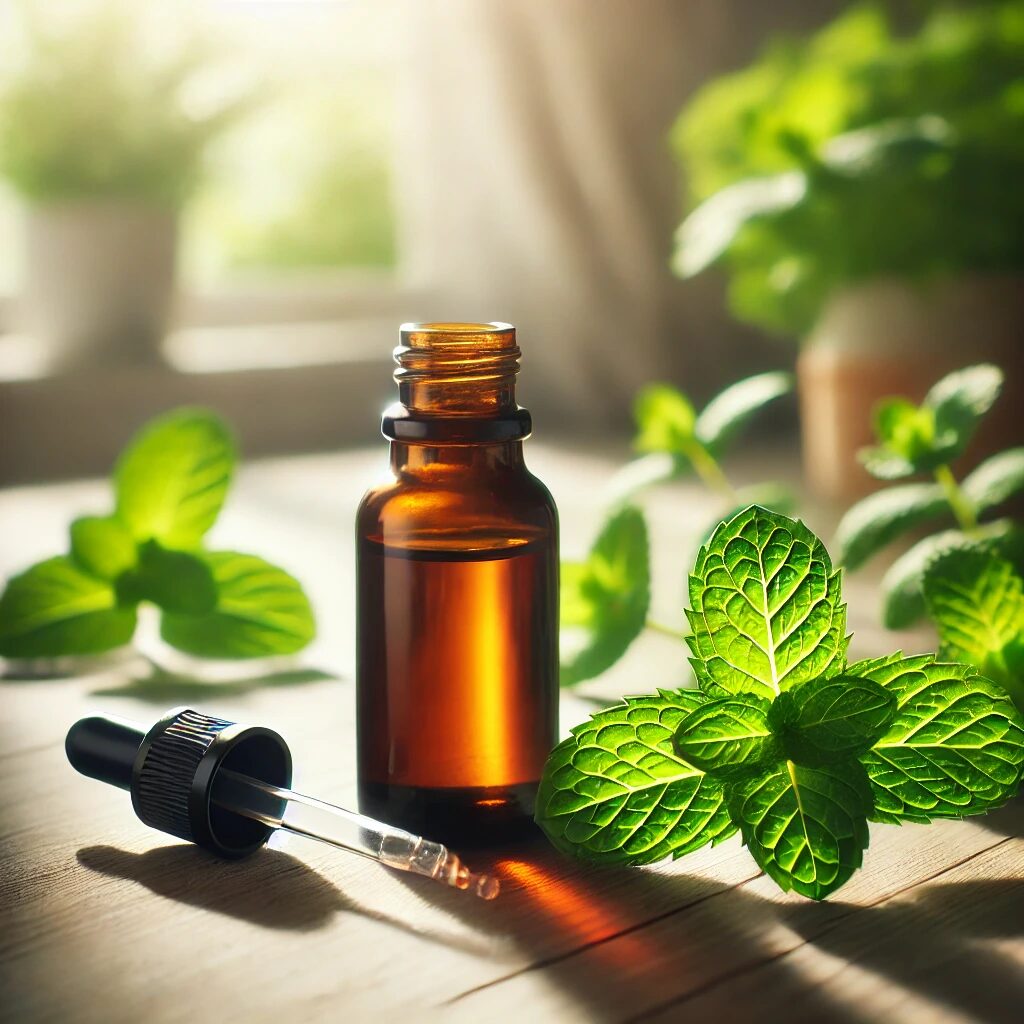
Peppermint Oil Works?
Peppermint oil contains compounds like menthol that create a strong, sharp scent. When rodents encounter this aroma, it can irritate their nasal passages and cause them to avoid the area entirely.
Not only is peppermint oil a great way to ward off rodents, but it also leaves a pleasant, clean scent behind, making it a win-win for you and your home environment.
Step-by-Step Guide: Using Peppermint Oil to Keep Rodents Out
You can easily create your own peppermint oil rodent repellent with just a few supplies. Here’s how to do it:
- Soak the Cotton Balls: Start by dripping about 10-15 drops of peppermint oil onto each cotton ball. Make sure they’re fully saturated, as this will make the scent stronger and longer-lasting. Depending on the area you’re treating, you might need several cotton balls.
- Place Strategically: Identify entry points and places where you’ve seen evidence of rodent activity. Common areas include baseboards, corners, under sinks, and near appliances. Place the cotton balls in these spots, paying special attention to cracks, crevices, and any openings where rodents could enter. If you’re targeting a specific room, consider placing a few cotton balls in different corners to create a broad scent barrier.
- Replace Regularly: Essential oils, including peppermint, are highly volatile and will evaporate over time. To keep the scent strong and effective, replace the cotton balls with fresh ones every few days. You’ll know it’s time to replace them when you can no longer smell the peppermint.
Additional Tips for Rodent Control with Peppermint Oil
- Combine with Other Essential Oils: Peppermint oil works well on its own, but you can enhance its effectiveness by combining it with other essential oils like eucalyptus or tea tree oil, both of which also repel rodents. Mix the oils together on a cotton ball for an even more potent repellent.
- Use Peppermint Oil Sprays: If you’re covering a larger area or want a quick refresh, you can make a peppermint oil spray. Simply add 10-20 drops of peppermint oil to a spray bottle filled with water. Shake well and spray around baseboards, along walls, and in any other high-traffic rodent areas. This is a quick way to refresh the scent without having to replace cotton balls.
- Monitor and Adjust: Keep an eye out for signs of rodent activity after you’ve placed your peppermint oil cotton balls. If you notice they’re still sneaking in, try adding more cotton balls or increasing the frequency of replacement to ensure the scent remains strong.
Peppermint Oil is a Great Alternative to Rodent Traps
Using peppermint oil to repel rodents is a humane and non-lethal approach, unlike traps or poisons that can harm or kill the animals. It’s also safe for households with children or pets, as long as you place the cotton balls out of reach.
Another advantage is that peppermint oil won’t leave behind harmful residues or contribute to indoor air pollution, making it a cleaner and safer option for you and your family.
3. Creating an Outdoor Barrier Against Mosquitoes and Flies
Few things can ruin a pleasant evening outdoors faster than mosquitoes and flies. These pesky insects seem to thrive during warm weather, turning your patio or backyard into an uncomfortable space.
Thankfully, essential oils like citronella, tea tree, and lemongrass offer an effective, natural solution to keep these uninvited guests at bay. These oils not only repel mosquitoes and flies but also add a refreshing, pleasant aroma to your outdoor space.
Citronella, Tea Tree, and Lemongrass Oils Work for Outdoor Pest Control
Each of these oils has properties that naturally repel insects. Citronella oil, often used in candles and sprays, is renowned for its effectiveness against mosquitoes. Tea tree oil is also a powerful insect repellent, known for its antimicrobial and anti-inflammatory properties.
Lemongrass oil adds a fresh citrusy scent and is particularly effective against flies and other flying insects. When used together, these oils create a formidable barrier that keeps your outdoor areas free from pests, allowing you to enjoy your time outside.
How to Use Citronella and Tea Tree Oils for Outdoor Pest Control
Here are two simple methods to create a protective shield around your outdoor spaces
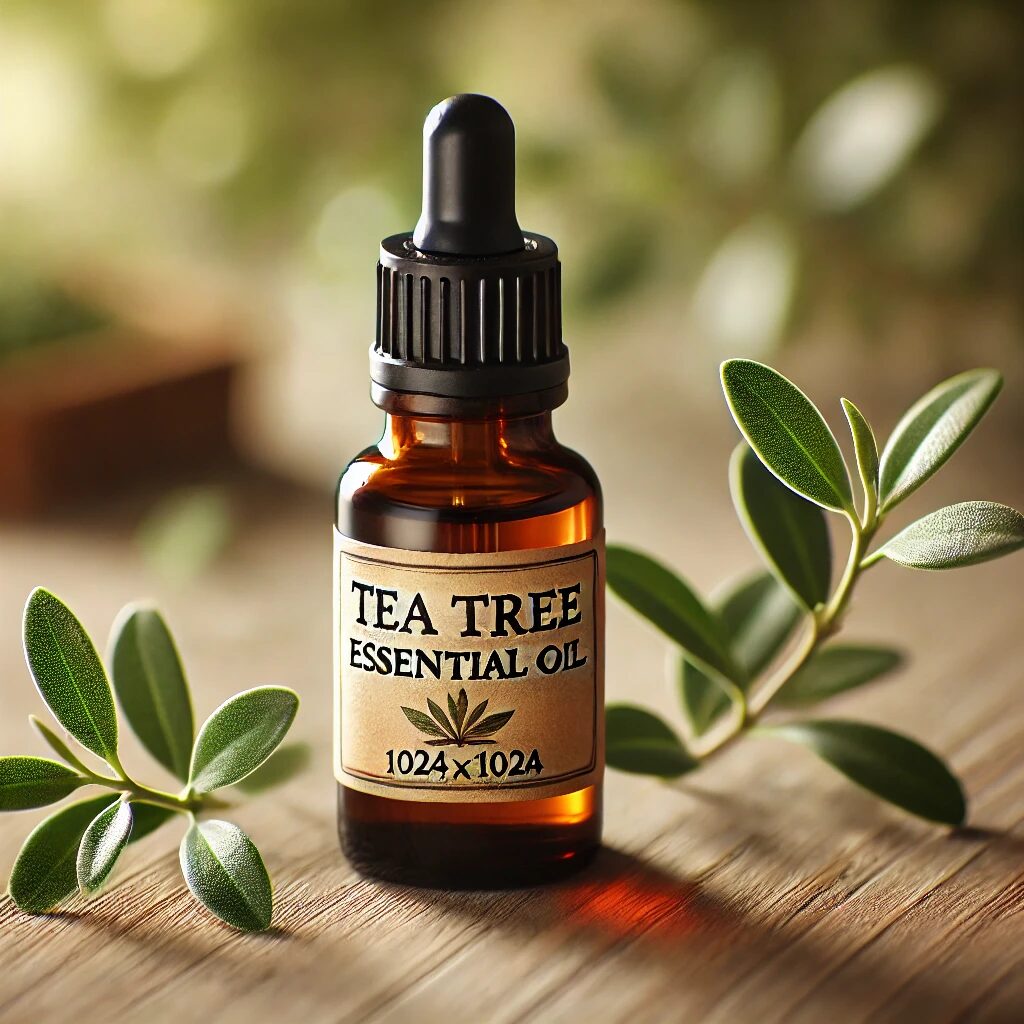
1. Outdoor Diffusers
Outdoor diffusers are a convenient way to distribute essential oils into the air. For an evening gathering, place one or two diffusers around your seating area and add 10-15 drops of citronella oil.
Citronella’s strong scent is particularly effective at masking human scents that attract mosquitoes, making it difficult for them to locate you. The pleasant aroma will also enhance the atmosphere, adding a touch of natural freshness to your space.
Steps:
- Place outdoor diffusers on stable surfaces around your seating area.
- Add 10-15 drops of citronella oil to each diffuser and turn them on.
- Let the diffusers run continuously while you’re outside to maintain a protective scent barrier.
2. DIY Mosquito and Fly Spray
If you prefer a more hands-on approach, a DIY spray can be an excellent option. This method allows you to cover larger areas, including garden furniture, patios, and other spots where mosquitoes and flies tend to linger.
To make the spray, combine citronella, tea tree, and lemongrass oils with water in a spray bottle. The combination of these oils creates a powerful scent that repels mosquitoes, flies, and even gnats.
Steps:
- Fill a spray bottle with water, leaving a little room at the top.
- Add 10 drops of citronella oil, 5 drops of tea tree oil, and 5 drops of lemongrass oil.
- Shake the bottle well to blend the oils with the water.
- Spray around your outdoor seating area, focusing on areas where pests are likely to gather, like tables, chairs, and garden edges.
For best results, reapply the spray every hour or so, especially if it’s windy, as the scent can dissipate more quickly. This DIY spray not only deters pests but is also non-toxic, making it safe for both humans and pets when used in outdoor settings.
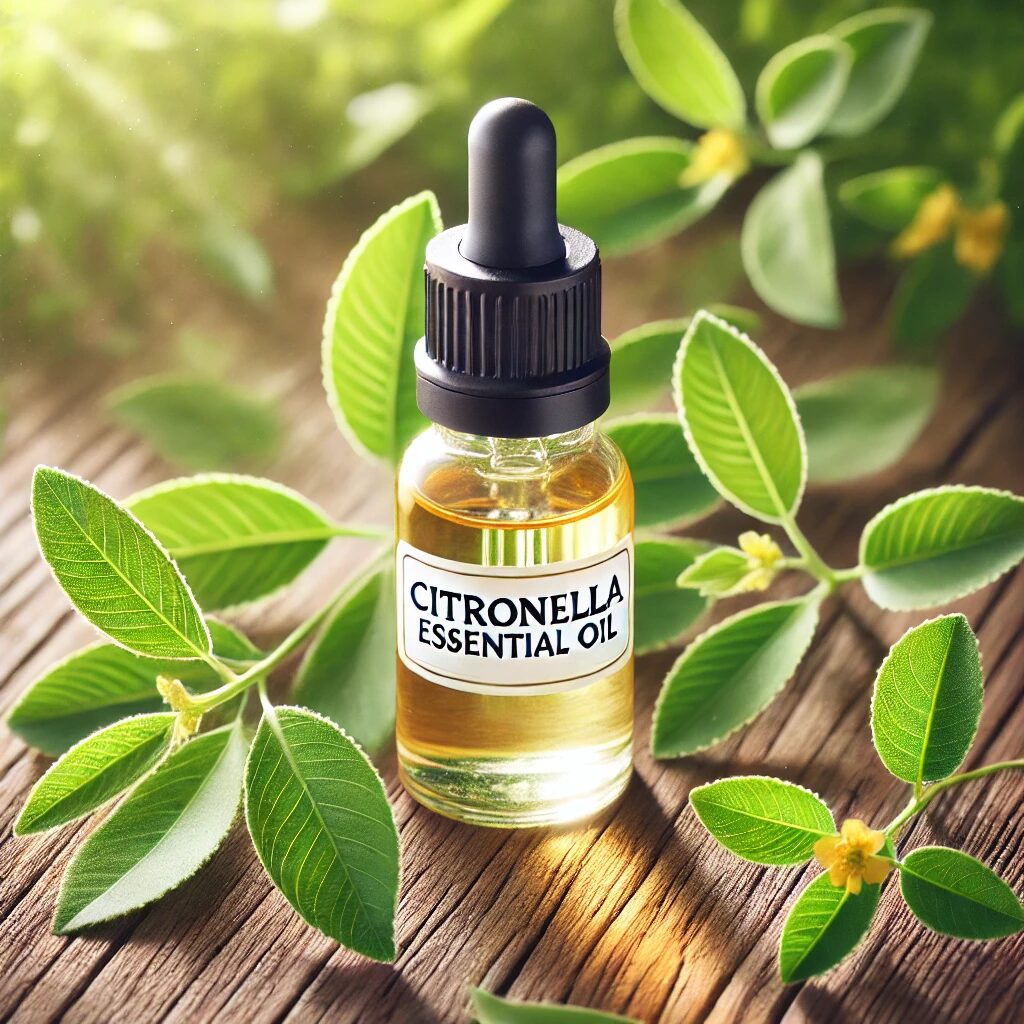
Additional Tips for Maximizing Your Outdoor Essential Oil Pest Barrier
- Apply to Fabrics: Spritz your DIY spray on outdoor cushions and tablecloths for added protection. The fabric will hold the scent longer, providing extended coverage.
- Use Citronella Candles: In addition to diffusers and sprays, consider using citronella candles for a multi-layered defense. These candles can be placed on tables or around your seating area for a decorative and functional touch.
- Refresh the Scents: Essential oils evaporate quickly, especially outdoors. Make sure to refresh your diffusers and reapply your spray every couple of hours to maintain a strong scent barrier.
- Combine with Other Methods: To further enhance your pest control efforts, consider adding other natural deterrents like fans (mosquitoes struggle to fly in strong breezes) or netting for high-traffic areas.
Using essential oils for outdoor pest control is a safe, eco-friendly, and pleasant way to reclaim your space from unwanted insects. By setting up diffusers and using a DIY spray, you can enjoy long summer nights on your patio or in your garden without worrying about mosquitoes and flies interrupting the fun.
4. Essential Oils for Bed Bug and Dust Mite Defense
Bed bugs and dust mites can turn your peaceful sanctuary into a nightmare. These tiny pests thrive in warm, soft areas like mattresses, pillows, and upholstery, and can cause itchy bites, allergic reactions, and even respiratory issues.
Luckily, essential oils such as lavender and eucalyptus offer a natural, effective way to keep these critters at bay. Not only do these oils help repel bed bugs and dust mites, but they also freshen up your linens and bedding with their soothing scents.
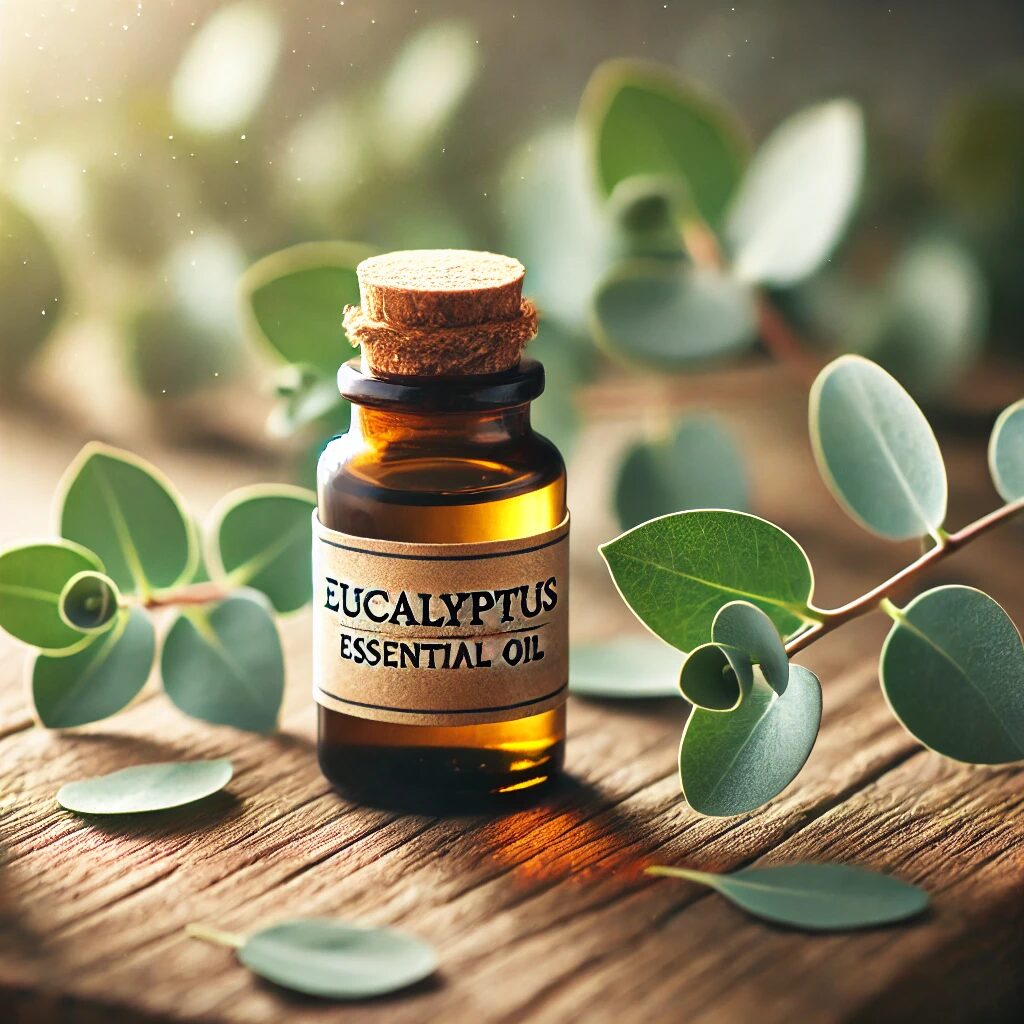
Lavender and Eucalyptus Work Against Bed Bugs and Dust Mites
Lavender and eucalyptus are powerful oils when it comes to deterring pests. Lavender oil has long been praised for its relaxing aroma, but its benefits go beyond just helping you sleep.
This essential oil contains compounds that are known to repel bed bugs and other insects. Eucalyptus oil, on the other hand, is widely recognized for its antibacterial and antifungal properties, which help in keeping dust mites away.
The combination of these two oils creates a potent, natural defense against pests while also leaving your bedding with a refreshing scent.
DIY Bedding Spray with Lavender and Eucalyptus
A simple way to use these essential oils is by creating a DIY spray for your bedding. This spray is easy to make, non-toxic, and can be applied regularly to ensure your bed remains a pest-free zone. Plus, the scent of lavender is well-known for promoting relaxation, making it an excellent choice to enhance your sleep environment.
Make your own bedding spray:
1. Mix the Spray
First, fill a clean spray bottle with water, leaving a little room at the top. Add 15 drops of lavender oil and 10 drops of eucalyptus oil to the bottle. Give it a good shake to blend the oils with the water. You can also add a few drops of witch hazel or vodka, which helps the oils to mix more effectively with the water and evaporate faster once sprayed.
- Ingredients:
- 15 drops of lavender oil
- 10 drops of eucalyptus oil
- Water
- (Optional) Witch hazel or vodka as an emulsifier
- Instructions:
- Fill a spray bottle with water, leaving space at the top.
- Add the lavender and eucalyptus oils.
- (Optional) Add a teaspoon of witch hazel or vodka.
- Shake the bottle well to mix.
2. Spray Linens Regularly
Lightly mist your mattress, pillows, and linens with the spray, focusing on areas that are more likely to harbor pests, such as the seams and edges of your mattress. Allow the spray to dry completely before making the bed. The refreshing scent will linger, promoting relaxation and giving you peace of mind that your bed is protected.
- Pro Tips:
- For added protection, spritz your spray in the morning and evening, allowing it to dry before you get into bed.
- You can also lightly spray around the bed frame and headboard, as bed bugs often hide in cracks and crevices.
Additional Tips for Keeping Bed Bugs and Dust Mites Away
- Vacuum Regularly: Make vacuuming a habit, especially around and under the bed. Use the hose attachment to thoroughly clean your mattress and box spring. This will help remove dust mites, bed bugs, and their eggs.
- Wash Bedding Frequently: Washing your sheets, pillowcases, and blankets in hot water will help to kill any bed bugs and mites that may be present. Adding a few drops of eucalyptus or lavender oil to the rinse cycle can boost the cleaning power.
- Encapsulate Your Mattress: Using a mattress cover that’s designed to protect against bed bugs and dust mites can prevent infestations and make it easier to keep your bedding clean.
- Use a Dehumidifier: Dust mites thrive in humid conditions, so keeping the air dry can reduce their numbers. A dehumidifier in the bedroom can help create an inhospitable environment for these pests.
- Why Use Essential Oils for Indoor Pest Control?
- Essential oils are derived from plants and contain natural compounds that repel various insects. Unlike synthetic chemicals, they won’t leave harmful residues on surfaces or in the air.
- Plus, essential oils like peppermint and lavender provide a pleasant fragrance that doubles as a natural air freshener.
- Many insects, including ants, spiders, and cockroaches, have a strong aversion to certain scents, making essential oils a safe and gentle alternative for pest control in your living spaces.
Conclusion
Using essential oils for pest control is a safe, non-toxic way to manage your pest problems at home.
With oils like peppermint, tea tree, citronella, and lavender, you have powerful tools at your disposal to keep various pests away.
Give these natural solutions a try, and you might just find that you don’t need chemical sprays or traps after all.
For more tips on creating a pest-free environment, explore our other guides on natural pest control and DIY solutions.
